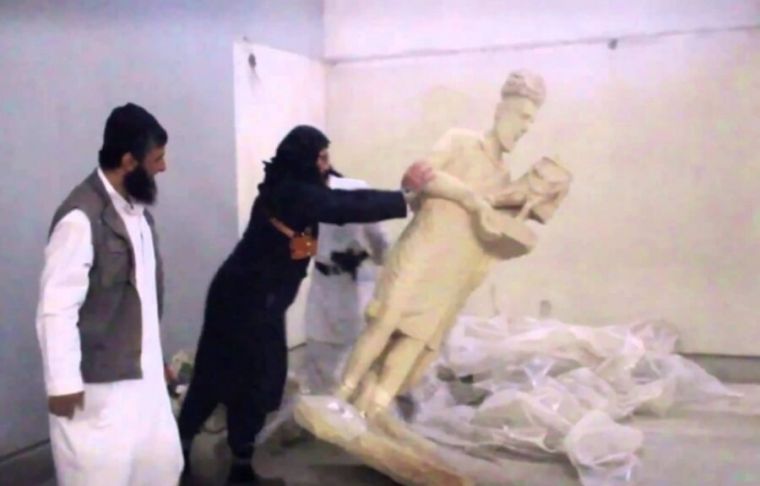ISIS not only destroying cultures; it's also profiting from sale of antiquities

The Islamic State has discovered another way of destroying cultures and making money from them at the same time — by selling antiquities from Iraq and Syria to the black market.
The Islamic terrorist group has attacked ancient monuments with jackhammers and bulldozers, justifying their actions by claiming that the ancient artefacts are idolatrous and showcase cultures that existed before Islam, The Washington Post reported on Monday.
However, they have also been looting antiquities and selling them to collectors and traders in the West.
"They steal everything that they can sell, and what they can't sell, they destroy," said Qais Hussein Rasheed, Iraq's deputy minister for antiquities and heritage.
"We have noticed that the smuggling of antiquities has greatly increased since last June," he said, referring to the month in which ISIS militants took control of Mosul and large parts of northern Iraq.
What started as sloppy plundering when the militants first gained a foothold in Syria evolved into a system of extracting "precious resources" as the group conquered more territory. Now the ISIS, through its "Diwan al-Rikaz," is even granting licenses for excavation activities in ancient sites.
Diwan al-Rikaz is the body that manages resources in the "caliphate." It has a department for oil and gas and another for antiquities.
"Islamic State has incorporated the activity of excavation into its bureaucracy," said Aymenn al-Tamimi, a researcher on jihadist groups at the Britain-based Middle East Forum.
In the ancient Assyrian capital of Nineveh, a video showed ISIS fighters drilling off the faces of stone-winged bulls on the gates of the city. They also destroyed statues at Mosul's museum, although many of those are replicas of treasures kept in Baghdad, according to Iraqi officials.
The instability in Iraq has affected historic sites, which have suffered looting for years as thieves take advantage of the situation. The poorly guarded National Museum in Baghdad was pillaged after the US-led invasion in 2003.
There is no definite figure yet on how much ISIS earns from the trade, but Iraqi officials say it is ISIS' second most important commercial activity after oil sales, especially now that the group is struggling to keep its oil revenue following airstrikes that battered its infrastructure.
"It's a dependable source of revenue, which makes it very attractive, and it's surprisingly untapped," said Michael Danti, a professor of archaeology at Boston University and a State Department adviser on trade of plundered antiquities from Iraq and Syria. "Over time, we've seen ISIL and organizations like it increase their ability to draw revenue from these crimes."
Danti said some of the loot have been made available in the US and other Western markets.
They are also now "flooding the market" and can be accessed online, according to Deborah Lehr, who co-founded the Antiquities Coalition, which seeks to end "cultural racketeering."
"There needs to be better education and better regulation," she said. "The public needs to know that by purchasing these items, people are potentially funding terrorism."
Officials in Baghdad say they are doing their best to stop the flow of trade, but ISIS is using decades-old smuggling networks.
"The longer Mosul is liberated, the more the danger that our human legacy will be wiped out," said Amr al-Julaimi, a lecturer in Mosul University's antiquities department until it was closed by the Islamic State.
He was told that ISIS is digging in areas around the tomb of Jonah, the prophet known in Christianity and Islam for being swallowed by a whale. The tomb was ruined by the extremists in July after it was seen as idolatrous.











